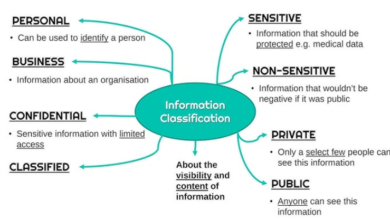
Navigating the Future: Transforming Interstate Logistics
The evolution of logistics and transportation is essential in shaping the economy across regions. As commerce grows increasingly global, the efficiency and sustainability of moving goods from point A to point B become essential. As such, truck transport interstate is a sector that stands at the brink of transformative change. This transformation is possible due to technological advancements, regulatory shifts, and evolving market demands. So, this article focuses on the dynamics shaping the future of interstate logistics and examines the role of technological innovation. It also talks about the impact of regulatory policies and the emerging trends redefining how goods traverse vast distances.
Technological Innovations Steering the Way
Introducing cutting-edge technologies has marked a new era in truck transport interstate. Automated vehicles powered by artificial intelligence (AI) and machine learning are set to redefine highway efficiency and safety. These autonomous trucks are equipped with advanced navigation systems. They can operate around the clock, reducing delivery times and addressing the industry’s chronic driver shortage.
Moreover, using Internet of Things (IoT) devices enhances real-time tracking and monitoring. It allows logistics companies to optimise routes, monitor vehicle health, and improve fleet management. This digitisation of the supply chain, from warehousing to the final delivery, promises greater transparency and increased reliability for businesses and consumers.
Environmental Regulations and Sustainability
As environmental concerns take centre stage globally, the logistics industry faces increasing pressure to reduce its carbon footprint. Stringent emissions regulations push companies to explore more sustainable practices, including adopting electric and hybrid trucks. These vehicles offer the dual benefits of lowering greenhouse gas emissions and reducing dependency on fossil fuels, aligning with broader sustainability goals.
In addition to vehicle innovations, logistics companies are adopting greener practices, such as route optimisation to reduce miles travelled and implementing eco-friendly packaging solutions. These efforts contribute to environmental sustainability and result in cost savings, proving that eco-friendly practices can go hand in hand with economic efficiency.
Impact of E-commerce on Interstate Logistics
The e-commerce boom has significantly influenced the logistics sector, with a surge in demand for faster and more reliable delivery services. This has led to reevaluating distribution networks, with an increased emphasis on regional distribution centres to expedite the delivery process. As a result, truck transport interstate plays an essential role in ensuring the smooth flow of goods from these centres to consumers. This necessitates more strategic planning and flexibility in logistics operations.
Furthermore, e-commerce has sparked innovations in last-mile delivery solutions, such as drones and autonomous vehicles. This could eventually extend to interstate logistics, offering new efficiency and service delivery possibilities.
Challenges and Opportunities Ahead
While the future of interstate logistics is ripe with opportunity, the road ahead has its challenges. Regulatory hurdles, technological integration costs, and cybersecurity and data privacy concerns pose significant barriers. Moreover, the industry must address the ongoing need for skilled labour, particularly transitioning to more automated and technology-driven operations.
However, these challenges also provide opportunities for innovation and collaboration. Partnerships between logistics companies, technology providers, and regulatory bodies can foster an environment conducive to sustainable growth and innovation. By embracing change and investing in the future, the sector can overcome these hurdles and emerge more robust and resilient.
Conclusion
The truck transport interstate is undergoing a profound transformation, propelled by technological advancements, regulatory changes, and shifts in consumer expectations. As the industry navigates these changes, the focus remains on enhancing efficiency, sustainability, and reliability. With the right strategies and investments, the future of interstate logistics promises to be more efficient, sustainable, and adaptable to the ever-evolving demands of global commerce. As you look to the horizon, it’s clear that the giants of the highway are not just carrying goods—they’re driving the future of logistics.




